
Date: 2020-08-21 Visitcount: 195
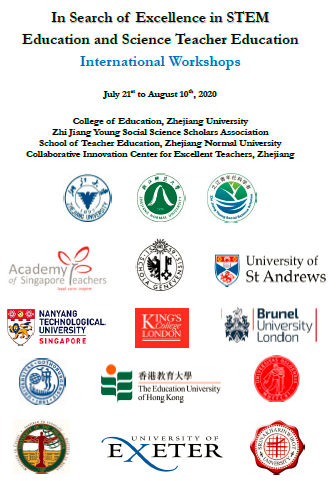
With thedevelopment of technology, STEM education has developed rapidly in China, but interregional disparities and unbalanced allocation of educational resources remain salient. Also, there is a large shortage of professional teachers. Since the innovation and sustainable development need to rely on high-quality science education and science teacher education, learning from the international experience in STEM education is so necessary.
From July 21st to August 10th, ZJU’s College of Education co-organized the "In Search of Excellence in STEM Education and Science Teacher Education International Workshops" with Zhi Jiang Young Social Science Scholars Association, School of Teacher Education of Zhejiang Normal University, and Collaborative Innovation Center for Excellent Teachers at Zhejiang. This workshops series included 14 online live lectures delivered by 13 well-known scholars from 8 countries and district, including the UK, Sweden, Singapore, the Philippines, Thailand, Norway, Switzerland, and Hong Kong. Those lectures focused on the topics of teaching methods of science education, science education in informal contexts, science education and evaluation supported by mobile technology, STEM education, etc.They shared the practice of STEM education and excellent science teacher education from various countries, helped to broaden the participants' horizon of STEM education, and provided insights into the training of excellent science teachers.
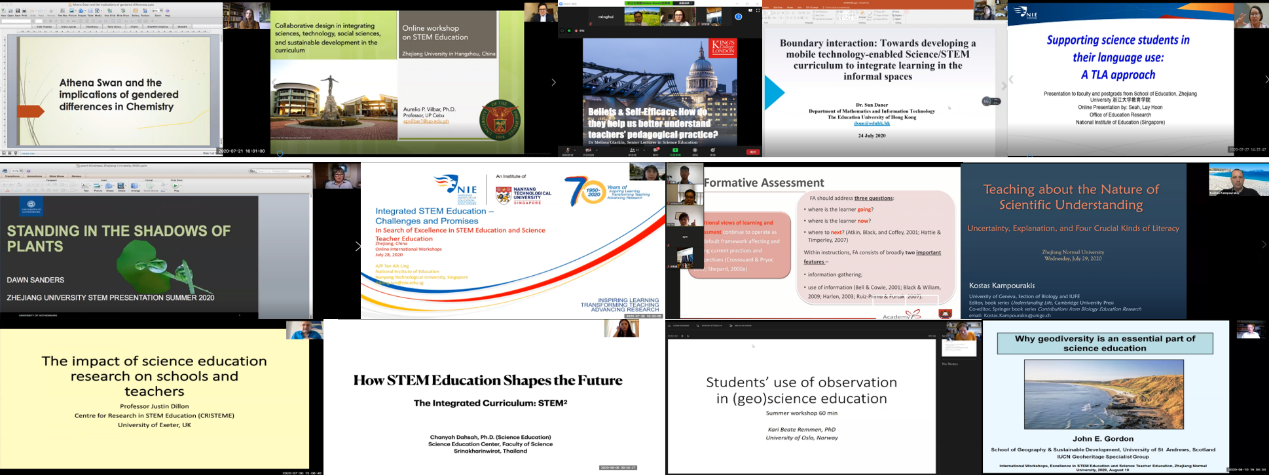
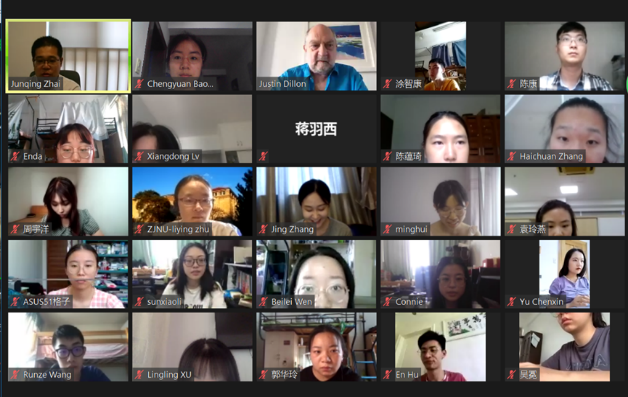
Professor Kate Hoskins from the Department of Education at Brunel University in the United Kingdompresented the findings from a case study, informed by semistructured interviews with 11 chemistry students and eight of their lecturers, at a best practice, high performing chemistry department in an English University to explore the distinct gender differences in student aspirations and achievement and the resultant inequalities.
Professor Aurelio Vilbar from School of Education at the University of the Philippines, Cebu, shared the design ideas of STEM courseswith the theme of cross-cultural comparison of local knowledge. He presented three cases of collaborative design among various teachers of English, Social Sciences, Sciences, Arts, and Robotics.
Dr. Melissa Glackin from School of Education, Communication and Society at King’s College London discussed why some teachers choose to teach outside whilst others do not by exploring the micro influences on their pedagogical practice. She focused on the concepts of beliefs and self-efficacy and introduced some instruments and methods that might be useful when studying teachers’ decision making and tried to discuss what the implications are for teacher educators and researchers.
Dr. Daner Sun from Department of Mathematics and Information Technology explored the crossover between formal learning and learning in informal spaces guided by Boundary Activities based Learning Principle (BABL). She introduced and discussed the conceptualization of the boundary object and the principles of boundary activity as the key elements of BABL principle. The proposed BABL principle would reinforce the theoretical underpinnings of mobile technology-enabled curriculum design and development, and would also help inform educators on how teaching and learning take place through crossing contextual borders.
Dr. Lay Hoon Seah from National Institute of Education at Nanyang Technological University in Singapore discussed an approach to raise the language awareness of science teachers to enhance their capacity to address the language demands of science. This approach, built upon a series of related research projects over the past 8 years, involves researchers working collaboratively with teachers in a series of iterative inquiry cycles to raise teachers’ awareness of the unique features, structures and values of the scientific language. This teacher language awareness (TLA) approach has been found to impact on teachers’ sensitivity to language use, their beliefs about the role of language in teaching and learning, and their assessment and teaching practices.
Associate professor Dawn Sanders from Department of Pedagogical, Curricular and Professional Studies at University of Gothenburg believed that conducting research to understand how we could move beyond “plant blindness” was imperative for a sustainable world. The aim with her study was to investigate learning experiences that moved beyond “plant blindness”. We would examine our proposed hypothesis if multimodal and sensoric experiences in “presented nature environments” might create shifts in perception away from “plant blindness” towards seeing the importance of plants for a sustainable world.
Associate professor Tan Aik Ling from the National Institute of Education at Nanyang Technological University in Singapore shared the methods and concepts of STEM activity design with the theme of "Integrated STEM Education: Challenges and Promises". In the interactive session, Dr. Tan had a further discussion of the implementation of STEM education and the training of STEM teachers with students.
Dr. Poh Hiang Tan, assessment Officer in Assessment and Research Division inferred her ideas of formative assessment as they engaged in science as inquiry and highlighted concerns and dilemma that emerged as they reported on their practices of science inquiry and formative assessment. We raised the concerns of the low level of teachers’ understanding of the principles related to formative assessment and the perceived conflicts with summative assessment requirements and their practices of science as inquiry in the classrooms
Professor Kostas Kampourakis from the Section of Biology, Faculty of Science of the University of Geneva, made suggestions about what secondary students should be taught to achieve these kinds of literacy, and what this kind teaching required from teacher preparation. He summarized the four goals of science education: 1)understand the science that is relevant and useful to everyday life, for instance what viruses are and how the infect and affect their hosts (science literacy); 2) understand the lessons one can learn from history, especially the history of past pandemics and the lessons learned from them (history literacy); 3) understand risk, probabilities and uncertainty, and learn to cope with them (risk literacy); 4) understand graphical information and be able to interpret the enclosed information (graphical literacy or graphicacy).
Professor Justin Dillon of science and environmental education from the Graduate School of Education at University of Exeter distilled some of the review’s findings of relevance to secondary school teachers. He focused on the impacts of fieldwork and outdoor educational visits, and then discussed what was known about effective practice before concluding with a look at barriers to fieldwork.
Dr. Chanyah Dahsah of Science Education and Director of Science Education Center at the Faculty of Science at Srinakharinwirot University in Bangkok, Thailand, talked about the "STEM2 curriculum" which is an integration of STEM with non-STEM subjects. She gave examples of STEM2 curriculum that develop with the Electricity Generating Authority of Thailand to promote students' awareness of electricity situations in Thailand.
Associate professor Kari Remmen from the Department of Teacher Education and School Research, Faculty of Educational Sciences at University of Oslo, pointed outthe challenges encountered by the students were discussed, thus providing ideas for how teachers could support students to use scientific observation in rock classification.
Dr. John Gordon , Honorary Professor from School of Geography and Sustainable Development at the University of St Andrews, Scotland, believed geodiversity has many values for nature and people. It forms the foundation for ecosystems, provides a range of economic, cultural and social benefits, and connects people, landscapes and their cultures. Understanding geodiversity and how the Earth system works is a key part of science literacy through formal and informal education.
The 21-day long international workshops help to broaden the frontier research horizon of STEM education and provide wonderful platform for the students to have close contact with international STEM education experts, who helped them to have a in-depth thinking of STEM education.
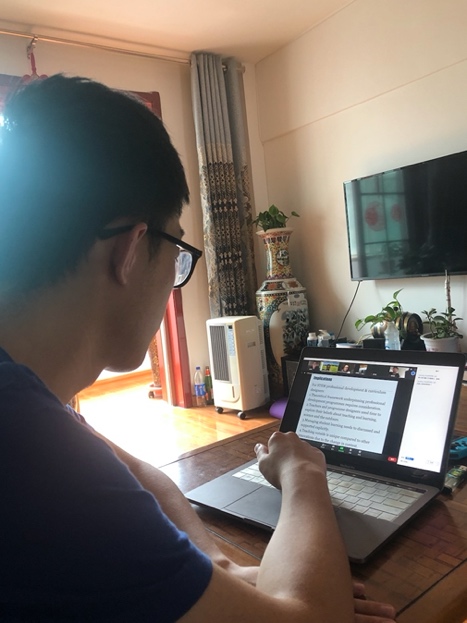
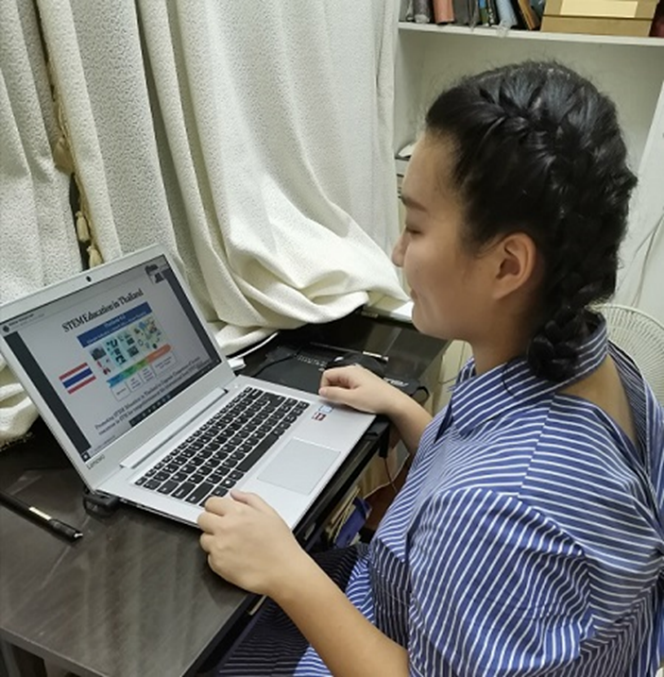
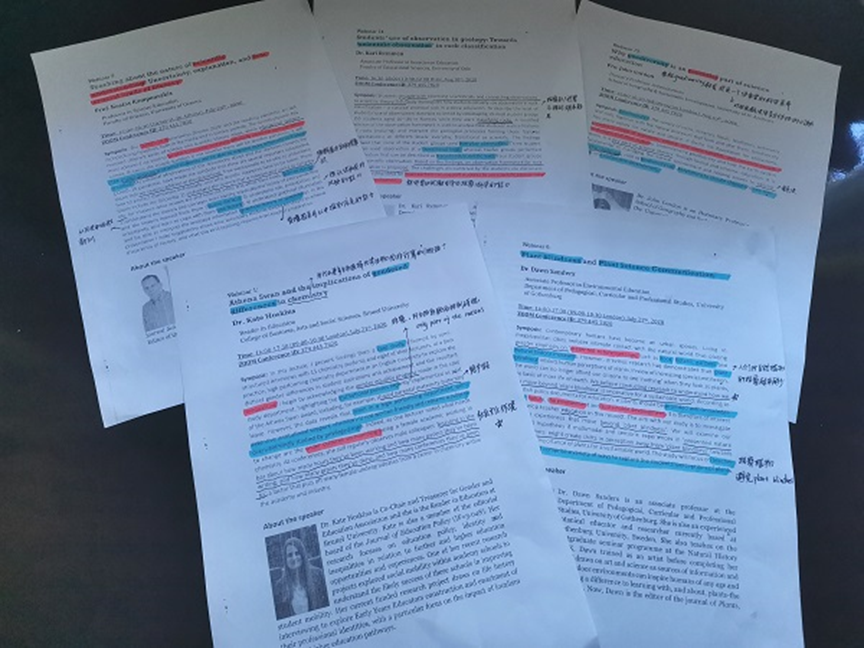
College of Education
Zhejiang University
August 18, 2020

